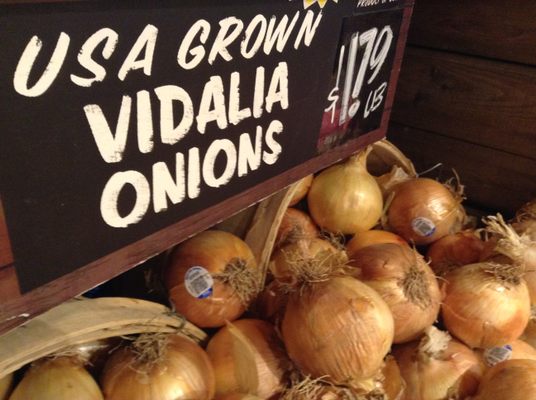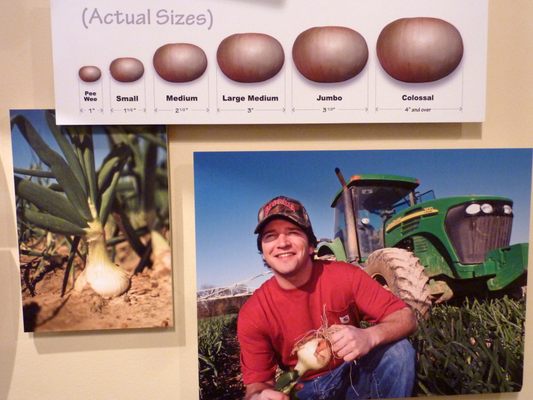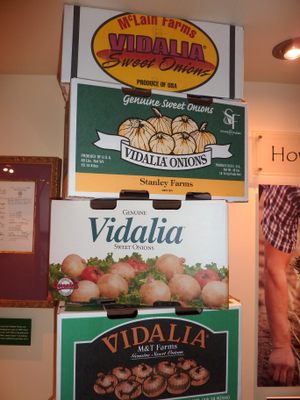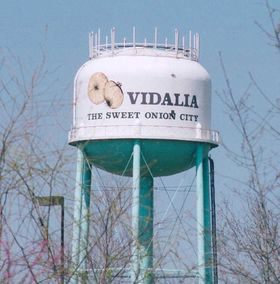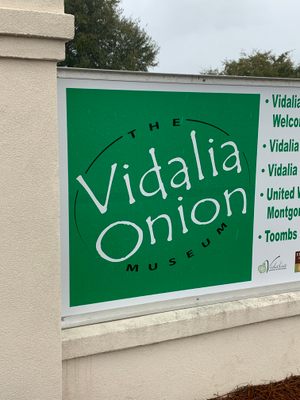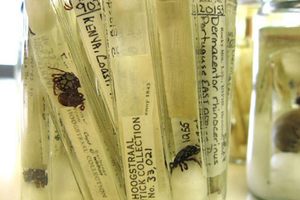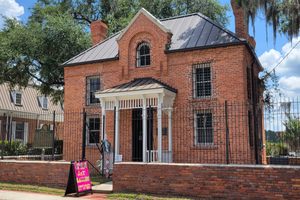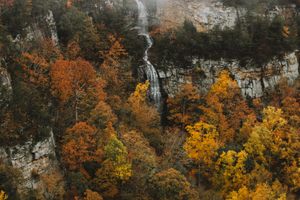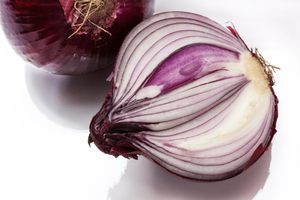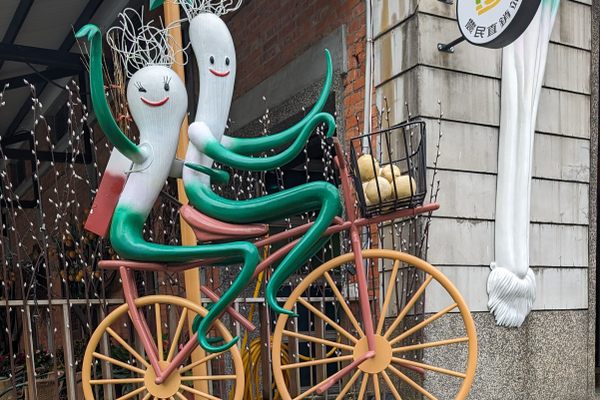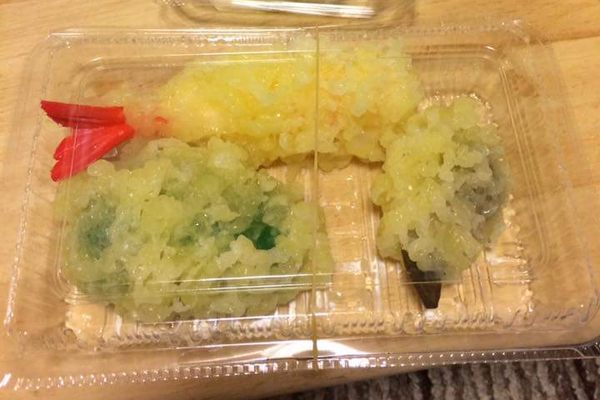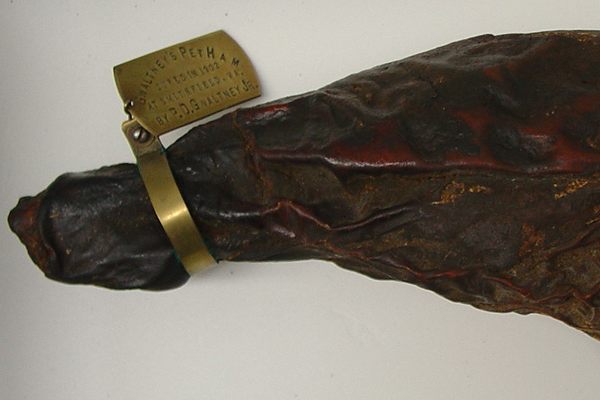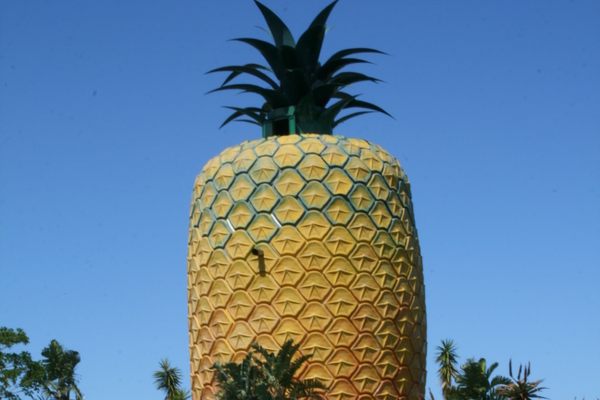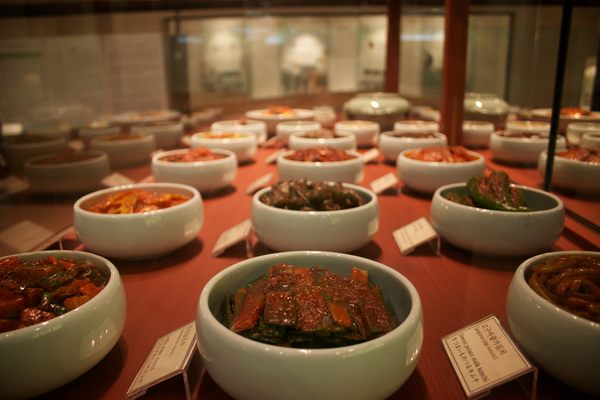About
Why does an onion make you cry? It’s the high sulfur content, absorbed from the soil. But if you happen to grow an onion where the winters are mild, the rain is regular, and the sulfur is low, that’s a story with a sweeter ending.
In the 1930s, a farmer named Ed Tensley came to Georgia to teach local farmers about the benefits of crop rotation, introducing onions as one of the rotating crops. A few years later, as the Great Depression swept the United States, farmer Mose Coleman noted the sandy soil of Toombs County, Georgia produced a sweet-tasting onion, and began selling his unusual crop from a trailer he made from the back of a Model T.
He recounts a meeting with a buyer at a grocery store chain: “I pulled out my onion and I ate it there in front of him. He’d never seen anything like it. There wasn’t any tears coming out of my eyes, and I wasn’t making no face.” Not only did the buyer buy Coleman’s onions, he advised his managers to do the same. Coleman planted 10 times as many onions the next year.
The onions remained an obscure local delicacy until 1949, when government officials decided to build a market in Vidalia, where two major roads met, to sell them to those passing by. They therefore came to be known as Vidalia onions, though they’re actually grown in 13 counties and portions of seven others, all in Georgia.
Vidalia-native Gerry Achenbach, a Wall Street advisor who helped establish the Piggly Wiggly supermarket chain, launched Vidalias across the southeast when he began stocking the onions in the chain's stores and built a distribution center in Vidalia, conveniently centered between Macon, Augusta, and Savannah. Soon, the onions went national, and in 1986, the Georgia General Assembly passed the Vidalia Onion Act so that only sweet onions grown in this particular region of Georgia can be called Vidalias.
Today, Vidalia onions are the official state vegetable of Georgia. They’re still planted and harvested by hand, and available in all 50 states and most of Canada. If you visit the area in April, you may catch the annual Vidalia Onion Festival and meet the Vidalia mascot, "Yumion." But any weekday, you can visit the Vidalia Onion Museum to learn more about the history and local onion agriculture, and pick up a cookbook full of Vidalia onion recipes. The museum contains exhibits about the vegetable’s economic, cultural, and culinary importance, and even has recorded oral histories from some of the Depression-era farmers who first unpeeled the many layers of the onion’s sweetness.
Related Tags
Community Contributors
Added By
Published
August 10, 2017
